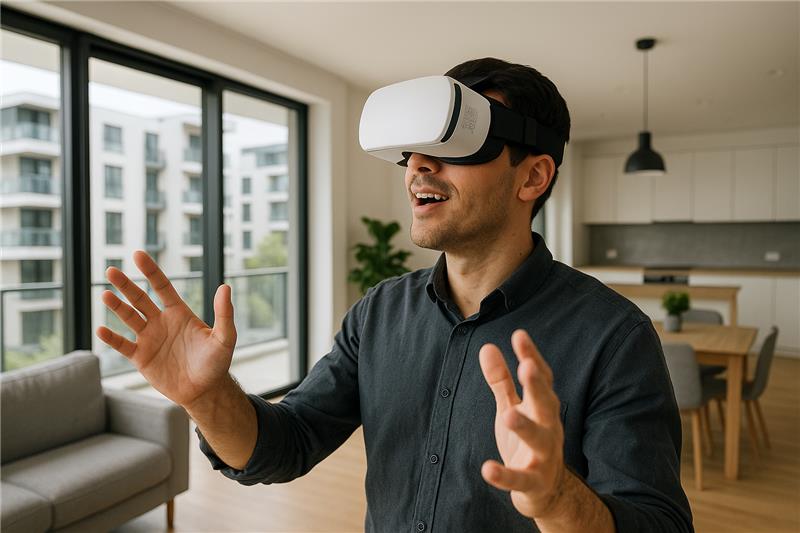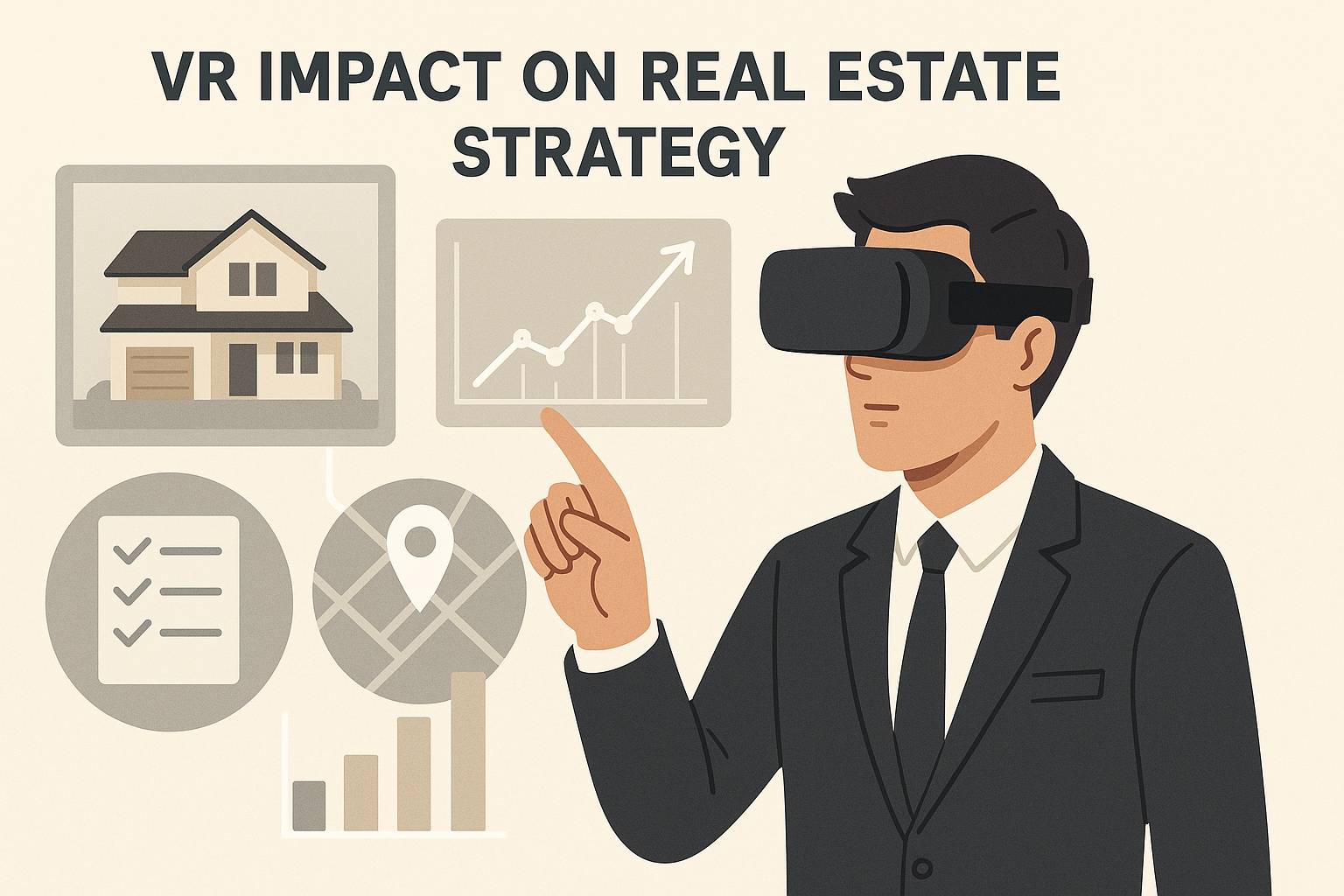How Indian Schools Can Stand Out with Immersive VR Learning
January 27, 2026
In a rapidly evolving technological landscape, the real estate industry stands poised on the brink of transformative innovation. Central to this evolution is the integration of Virtual Reality (VR) technology—a tool that promises to redefine how we perceive and interact with physical spaces.
As an entrepreneurial business leader, you may find yourself grappling with the complexities of technological advancements, seeking ways to translate these innovations into tangible business outcomes. This article seeks to explore the future of VR in real estate, providing insights and strategies for leveraging this technology to drive innovation and progression in your business.

Virtual Reality, a technology once confined to the realms of gaming and entertainment, is now making significant inroads into the real estate sector.
At its core, VR provides an immersive, three-dimensional experience that allows users to explore virtual environments as though they were physically present. This capability has profound implications for real estate, offering innovative solutions to age-old challenges and opening new avenues for growth and engagement.
One of the most compelling applications of VR in real estate is the virtual property tour. In a traditional property viewing, prospective buyers must physically visit each property—a process that can be time-consuming and logistically challenging.
VR real estate tours, however, allow potential buyers to explore multiple properties from the comfort of their own homes, offering a convenient and efficient alternative to in-person viewings.
Virtual tours provide a realistic and detailed view of properties, enabling buyers to assess layouts, room sizes, and finishes with remarkable accuracy. This not only enhances the customer experience but also broadens the market for real estate professionals, allowing them to reach international clients and those unable to travel.

As a business leader, understanding the strategic implications of VR technology is crucial for harnessing its full potential. VR offers several benefits that can drive innovation and efficiency within the real estate sector.
VR technology enhances client engagement by providing interactive and memorable experiences. Clients can visualize themselves in a potential new home, facilitating a deeper emotional connection with the property. This immersive experience can accelerate the decision-making process, reducing the time properties spend on the market and increasing sales efficiency.
VR can streamline the sales process by allowing real estate agents to showcase properties to a larger audience without the constraints of geographical boundaries. By integrating VR into your marketing strategy, you can present properties to potential buyers across the globe, facilitating international sales and expanding your business reach.
Incorporating VR into your business model can lead to significant cost savings. By reducing the need for physical property viewings, VR can decrease travel expenses and the time agents spend on showings. Moreover, VR technology can help identify serious buyers early in the process, allowing agents to focus their efforts on high-potential leads.

To effectively implement VR technology in your real estate business, consider the following strategic steps:
Selecting the appropriate VR tools and platforms is critical for success. Look for solutions that offer high-quality graphics, user-friendly interfaces, and seamless integration with your existing systems. Consider partnering with technology providers who specialize in real estate applications to ensure that your VR solutions meet the specific needs of your industry.
To maximize the benefits of VR, your team must be well-equipped to utilize the technology effectively. Provide comprehensive training to ensure that your agents understand how to conduct virtual tours, engage with clients using VR tools, and troubleshoot any technical issues that may arise.
Promote your VR capabilities as a unique selling point in your marketing efforts. Highlight the convenience and engagement offered by virtual tours in your advertisements, and encourage potential clients to experience properties through VR. This can differentiate your business from competitors and attract tech-savvy buyers who value innovation.
As with any technological implementation, it is essential to monitor the impact of VR on your business outcomes. Track metrics such as sales conversion rates, client engagement levels, and cost savings to assess the effectiveness of your VR strategy. Use this data to make informed decisions about future investments in VR and other technological innovations.
The future of VR in real estate is filled with potential. As technology continues to advance, we can expect VR experiences to become even more immersive and accessible. Emerging trends such as augmented reality (AR) and mixed reality (MR) may further enhance the capabilities of VR, offering new opportunities for innovation and business growth.
As a forward-thinking business leader, embracing VR technology can position your real estate business at the forefront of industry innovation. By understanding the strategic benefits of VR and implementing it effectively, you can drive business impact, improve client satisfaction, and achieve your organizational goals.
In conclusion, the integration of VR technology in real estate is more than just a trend—it represents a fundamental shift in how the industry operates and engages with clients. By exploring and adopting VR, you can unlock new possibilities for your business and lead the way in real estate innovation.
At Qodequay, we believe that meaningful innovation starts with understanding people. As a design-first company, we lead with deep empathy—immersing ourselves in the everyday realities, behaviors, and desires of your customers.
Only after decoding real-world pain points do we bring in technology as the enabler. This ensures every solution we build is not just technically sound, but intuitively aligned with human needs.
Whether it's:
We design with purpose, and build with precision.